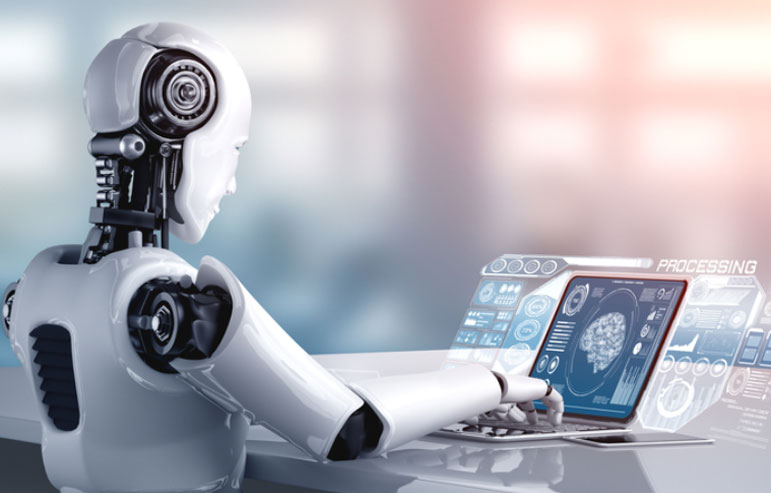Artificial intelligence, also known as AI, is a branch of computer science that specialises in the area of building machines or robots that can think, perceive, and act intelligently. Contrary to popular belief, AI and robots are not the same. The former possesses the ability to emulate the human mind to make decisions and learn new things, whereas the latter involves the creation of robots to perform tasks without further intervention. Ever since Newell and Simon created the first artificial intelligence program, many people, including notable technological giants like Elon Musk and Stephen Hawking, have expressed concerns over its threat to mankind. They argued that although AI has brought a lot of convenience into our lives, there is still a risk of the system going rogue or getting hacked by an enemy. When that happens, it could result in massive harm. In my opinion, such concerns are valid as AI systems are gradually developing into a state where it can handle any task that intelligent humans could also perform. In fact, sometimes AI can even outperform humans, and a machine with human intelligence poses critical threats. Therefore, I strongly believe AI is dangerous because it can result in autonomous weaponry, discrimination, privacy invasion, and goal misalignment.
First and foremost, AI is dangerous because it can result in autonomous weaponry. Russia’s president Vladimir Putin once said: “Artificial intelligence is the future, not only for Russia, but for all humankind. It comes with enormous opportunities, but also threats that are difficult to predict. Whoever becomes the leader in this sphere will become the ruler of the world.” AI programmed to do something dangerous, as is the case with autonomous weapons programmed to kill, is definitely one of the more worrying ways that AI can pose risks. It might even be plausible to expect that the nuclear arms race will be replaced with a global autonomous weapons race. Another more imminent concern is the dangers autonomous weapons might have with an individual or government that doesn’t value human life. Once deployed, they will likely be difficult to dismantle or combat.
Besides that, discrimination is another reason behind the dangers of AI. Like children, AI develops its own ideas and intelligence from its users. If it is constantly surrounded by people who verbally discriminate, it will most likely pick up the discriminatory accusations and propel such despicable ideologies further. Furthermore, AI cannot comprehend the complexity of human emotions. It does not have a moral compass like humans do. Granted, it can learn our mannerisms and our cognitive processes to a certain degree, but it is currently incapable of learning human emotions. By coupling this lack of empathy with its ability to collect, track, and analyse so much about you, it’s very possible for those machines to use that information against you. If it falls in the wrong hands, discriminatory discourses will elevate to a critical degree.
Thirdly, AI is dangerous because it can invade your privacy. It is now possible to track and analyse an individual's every move online as well as when they are going about their daily business. Cameras are nearly everywhere, and facial recognition algorithms know who you are. In fact, this is the type of information that is going to power China's social credit system that is expected to give every one of its 1.4 billion citizens a personal score based on how they behave—things such as do they jaywalk, do they smoke in non-smoking areas and how much time they spend playing video games. When Big Brother is watching you and then making decisions based on that intel, it’s not only an invasion of privacy it can quickly turn to social oppression.
Last but not least, your goals may not align with AI's goals, and that contributes to the rising danger of AI. Part of what humans value in AI-powered machines is their efficiency and effectiveness. But, if you are not clear with the goals you set for AI machines, it could be dangerous if a machine isn’t armed with the same goals you have. For example, a command to “Get me to the airport as quickly as possible” might have dire consequences. Without specifying that the rules of the road must be respected because we value human life, a machine could quite effectively accomplish its goal of getting you to the airport as quickly as possible and do literally what you asked, but leave behind a trail of accidents.
In conclusion, AI is dangerous because it can result in autonomous weaponry, discrimination, privacy invasion, and goal misalignment. Any powerful technology can be misused. Today, artificial intelligence is used for many good causes including to help us make better medical diagnoses, find new ways to cure cancer and make our cars safer. Unfortunately, as our AI capabilities expand we will also see it being used for dangerous or malicious purposes. Since AI technology is advancing so rapidly, it is vital for us to start to debate the best ways for AI to develop positively while minimizing its destructive potential.
Author: J, K Rollin'
Vocabulary
- Contrary to popular belief: 与普遍看法相反
- Emulate: 仿真
- Intervention: 干涉
- Notable: 显著
- Massive: 大量的
- Outperform: 超越
- Autonomous: 自主性
- Deployed: 部署;调动
- Discrimination: 歧视
- Despicable: 卑鄙
- Comprehend: 理解
- Complexity: 复杂
- Elevate: 提升
- Invade your privacy: 侵犯你的隐私
- Facial recognition systems: 面部识别系统
- Oppression: 压迫
- Align: 对齐

